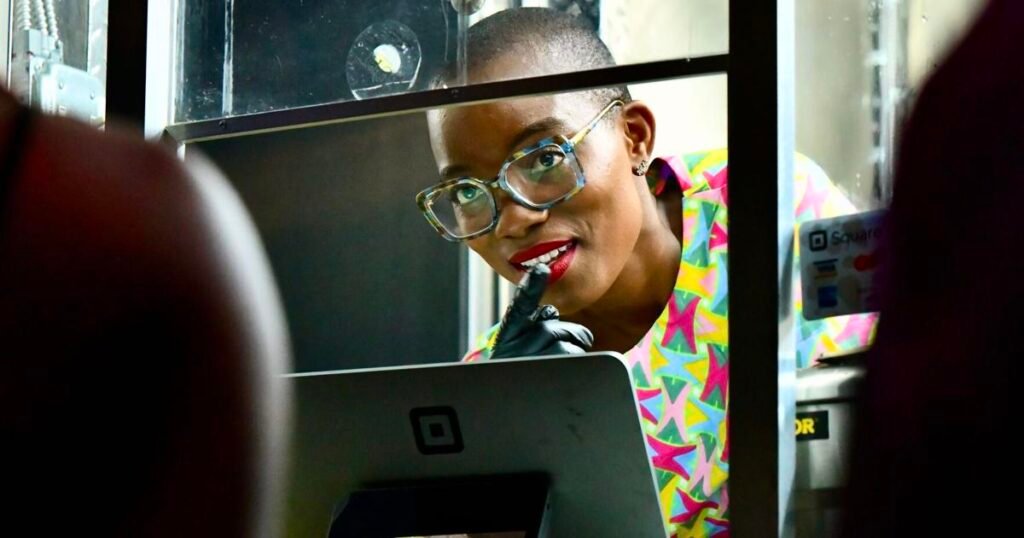“The people I had the opportunity to interact with, from my peers in the program to coordinators Ben and Gabriella, really helped me to take myself and my ideas seriously. I found some great mentors throughout the program,” he said.
Antonio Brazelton always had big ideas to start his own business, but he realized he didn’t have the framework to hone and shape those ideas in a way that would allow him to truly pursue his passion for plant science and feeding the world. Like many budding entrepreneurs, Cortex One helped him realize his dream.
The Cortex Square One program is a series of programs designed to help entrepreneurs bring their ideas to life through learning and networking opportunities, resources, and mentorship. Last year, Square One programs produced 103 graduates, including 23 from the Square One Bootcamp. 65% of graduates are women and 70% are people of color.
Brazelton joined the company in 2022 because he felt he needed a formal environment with clear guidelines to bring his ideas to life. He also thought he would benefit from being part of a network of peers and people who were aligned in the same direction.
“The Square One Ignite program helped me distill the customer discovery interviews I did at SLU-ICOR into concrete problems I could address,” Brazelton said. “It also helped me realize that I needed to completely pivot from my original idea to better serve the needs of my potential customers.”
Brazelton is the owner of Herban AgTech, a software company focused on providing scalable digital resources to the farm-to-table movement, and his company is prototyping an app that will connect farmers and chefs across the city.
“Urban farmers have the advantage of being able to grow niche varieties on a large scale,” he says, “which makes them great partners for chefs, artisans and local grocers who want to offer their customers the finest locally grown ingredients.”
He wants to support new urban farmers growing niche products by making it as easy as possible for them to connect to new markets.
Central to Square One’s mission is to empower people from underserved communities who have traditionally been shut out of the entrepreneurial ecosystem and ensure that all St. Louisans, regardless of their background, can contribute to building a vibrant and inclusive ecosystem.
The program focuses on IT, biosciences, advanced manufacturing, consumer manufacturing and food. Cortex Square One gives entrepreneurs the tools they need to start a successful business, says Ben Molina, the program’s entrepreneurship manager.
“We give them validation for their ideas, teach them to find target markets and connect them with the local ecosystem,” Molina said while explaining Square One Ignite, the first phase of the program, which will run two four-week sessions a year.
Square One Bootcamp is the second phase, a 10-week program where entrepreneurs learn the fundamentals of running a business and connect with mentors and other experts. Entrepreneurs receive training in budgeting, pitching and marketing. They also learn the ins and outs of product design and personal credit. Partnerships with the St. Louis Empowerment Center, the St. Louis Hispanic Chamber of Commerce, the St. Louis Afghan Chamber of Commerce and the St. Louis African Chamber of Commerce keep the program connected to the community.
“We know that Cortex has a responsibility and strive to collaborate with others doing similar work across the region,” said Gabriela Ramirez Arellano, vice president for entrepreneurship. Piggybacking on her comments, Molina added, “Our role is to provide them with the support and tools they need to succeed.”
Ramirez Arellano said it was clear Brazelton, who participated in all three phases of the program, had the drive necessary to succeed.
“He’s shown incredible resilience,” Ramirez-Arellano said. Brazelton sometimes brings his young son to class. “It’s so inspiring to see him so committed to his future,” she added. Many of the entrepreneurs have full-time jobs, families and other responsibilities. Participants are provided with transportation, such as Uber and Metrobus/Link passes. “This is to make sure there are no barriers that stop people from getting here,” Ramirez-Arellano said.
Molina said Ajo Honsou, owner of the food truck Fufu n Sauce, first joined Cortex Square One because she wanted to work in the food industry but needed help getting started. The program gave her access to a commercial kitchen and also taught her how to build a resource networking circle.
“We meet [entrepreneurs] Where they are,” Molina said.
Hongsu says she liked the program’s slower pace. “I was able to get more in-depth information from the classes and resources I took,” she says. This gave her time to think about how to apply what she learned to her own business, for example, when and how to leverage the mentors she met. Hongsu comes from a corporate environment, and she also needed to learn how to transition into the entrepreneurial field.
Trinity Griffin joined the program in 2021 after seeking resources for small businesses in the St. Louis area. The program helped her move through the idea validation process and gain a deeper understanding of market fit. Griffin created a mobile app that helps people with their emotional journey.
Tracking My Tears tracks the number of times a user has cried. The app tracks relevant data about each cry and connects with other users. With Tracking My Tears, users only track one physical response to different emotions. This helps users understand how their body can use one response to different emotions.
For more information, visit https://squareone.cortexstl.org/.
Ashley Winters is a reporter for the St. Louis American.

